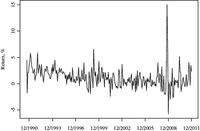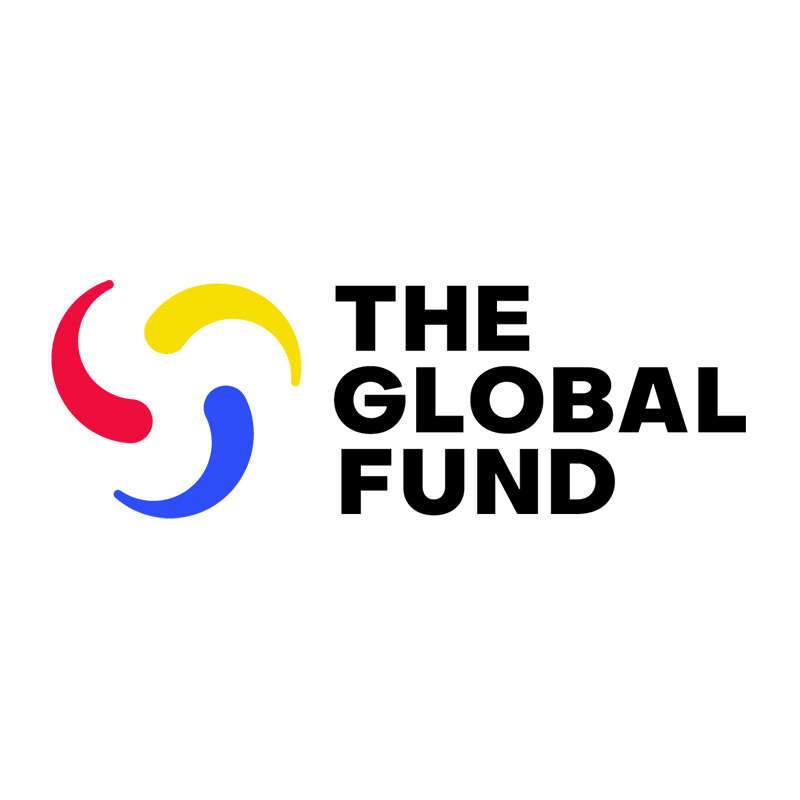Explore web search results related to this domain and discover relevant information.

When she did pivot to VC, she mainly ... and supply chain companies. Meanwhile, Harris came from the operator side, holding positions as chief operating officer of Farmer’s Fridge and previously developing the sustainable commodities program at Mars. They started raising for the fund in 2021, and ...
When she did pivot to VC, she mainly invested in manufacturing and supply chain companies. Meanwhile, Harris came from the operator side, holding positions as chief operating officer of Farmer’s Fridge and previously developing the sustainable commodities program at Mars. They started raising for the fund in 2021, and it took them about two years to close the $40 million, which they attribute to some factors that included that limited partners wanted to see how they invested as a team and that they are investing in both technology and consumer companies, 75% and 25%, respectively.The pair are backed by a list of heavy-hitting limited partners, including 301 INC, the venture capital arm of General Mills; MassMutual through its First Fund Initiative; the Office of the Illinois Treasurer through the Illinois Growth and Innovation Fund; Illumen Capital’s Catalyst Fund; and J.P. Morgan Asset Management. Starting in June 2021, Cadena and Harris began investing. In addition, they offer a six-month cohort program that all founders take part in that focuses on leadership, management and culture. They invest at the earliest stages in the areas of deep tech food, agriculture and ingredient, supply chain technology and enterprise software, with a thesis around securing the future food supply.Supply Change Capital closed on $40 million in capital commitments for its first fund, targeting investments in the global food industry valued at $10 trillion.Supply Change Capital’s new fund puts it among a growing group of women-led venture capital firms that closed on sizable debut funds this year.
Funding for the poultry and egg sector has been fully allocated. As of July 22, 2025, the program is no longer accepting new applications from these sectors. The Supply Management Processing Investment Fund (SMPIF) helps processors of supply-managed commodities adapt to market changes resulting ...
Funding for the poultry and egg sector has been fully allocated. As of July 22, 2025, the program is no longer accepting new applications from these sectors. The Supply Management Processing Investment Fund (SMPIF) helps processors of supply-managed commodities adapt to market changes resulting from the implementation of the Canada-European Union Comprehensive Economic and Trade Agreement (CETA), the Comprehensive and Progressive Agreement for Trans-Pacific Partnership (CPTPP) and the Canada-United States-Mexico Agreement (CUSMA).The application intake period for contribution funding is open for dairy processors.
Supply Finance is a developer of a software tool to offer professional-grade trade financing to SMEs.
Discover more funding rounds · Find More Contacts for Supply Finance · Protected Content · Junior Developer, Junior Full Stack Developer · 1 email found · View contacts for Supply Finance to access new leads and connect with decision-makers. View All Contacts ·Last Funding Type · Series A · Company Type · For Profit · The rich get richer, and small businesses get poor trade financing until now. They founded Supply Finance with a simple mission that gives Europe's small businesses the same financing tools as the big guys, and then stand back and watch the magic happen.Last funding round type (e.g.


London-listed inventory finance firm Supply@Me Capital has disclosed that a financing arrangement with a related party has failed to deliver funds required to address “urgent” cash flow concerns. Supply@Me, which was launched in 2020 and provides an “inventory monetisation” platform ...
London-listed inventory finance firm Supply@Me Capital has disclosed that a financing arrangement with a related party has failed to deliver funds required to address “urgent” cash flow concerns. Supply@Me, which was launched in 2020 and provides an “inventory monetisation” platform for companies seeking to boost working capital, announced in March it had secured an on-demand…Supply@Me, which was launched in 2020 and provides an “inventory monetisation” platform for companies seeking to boost working capital, announced in March it had secured an on-demand convertible funding facility with Nuburu, a New York Stock Exchange-listed technology company.The facility would provide US$5.5mn across seven tranches, and followed efforts by Supply@Me “to secure alternative sources of funding to address the urgent cashflow needs of the group”, a March filing with the London Stock Exchange shows.It said that if SFE Equity Investments made up to US$3mn available to Nuburu, Nuburu would then be able to accelerate the payment schedule agreed with Supply@Me. SFE Equity Investments also has ties to Zamboni through TAG, which holds a non-controlling ownership interest in its parent company. Although Nuburu said in April it had secured additional funding, it is not clear from corporate filings whether the potential transaction with SFE Equity Investments was concluded.

A rapidly growing money supply and a wave of central bank rate cuts are propelling stock markets higher, says a fund manager.
They seek to remain a low-cost and reliable energy supplier, competing with other energy types and renewables and so whenever there are geopolitical shocks that threaten the delicate dynamics of supply and demand, OPEC+ wants to step in to ensure stability - and security.Global money supply growth is rising at 12% per annum.
An investment fund is a supply of capital belonging to numerous investors, used to collectively purchase securities, while each investor retains ownership and control of their own shares. An investment fund provides a broader selection of investment opportunities, greater management expertise, ...
An investment fund is a supply of capital belonging to numerous investors, used to collectively purchase securities, while each investor retains ownership and control of their own shares. An investment fund provides a broader selection of investment opportunities, greater management expertise, and lower investment fees than investors might be able to obtain on their own.Closed-end funds trade more similarly to stocks than open-end funds. Closed-end funds are managed investment funds that issue a fixed number of shares and trade on an exchange. While a net asset value (NAV) for the fund is calculated, the fund trades based on investor supply and demand.An investment fund is the pooled capital of investors that enables the fund manager to make investment decisions on their behalf.With investment funds, individual investors do not make decisions about how a fund's assets should be invested. They simply choose a fund based on its goals, risks, fees and other factors. A fund manager oversees the fund and decides which securities it should hold, in what quantities, and when the securities should be bought and sold.
:max_bytes(150000):strip_icc()/investment-fund.asp-final-ee4e72eb6afa4c4ba9747fc6fac305f9.png)

The protocol also established a $10 million insurance fund to reinforce protection for users and institutional participants. "Crossing $1.5 billion in USDf supply reflects the growing confidence our community and partners place in Falcon Finance," said Andrei Grachev, Managing Partner at Falcon ...
The protocol also established a $10 million insurance fund to reinforce protection for users and institutional participants. "Crossing $1.5 billion in USDf supply reflects the growing confidence our community and partners place in Falcon Finance," said Andrei Grachev, Managing Partner at Falcon Finance.4, 2025 /PRNewswire/ -- Falcon Finance announced today that its decentralized stablecoin USDf has reached an all-time high of $1.5 billion in circulating supply, underscoring accelerating adoption and strengthening trust within the DeFi ecosystem. The milestone builds on the protocol's transparency commitments, yield innovation, and newly established $10 million insurance fund.Falcon Finance announced the establishment of its dedicated onchain insurance fund today, a structural safeguard designed to enhance transparency,...

Abstract. Regressing hedge funds’ returns on returns to a long–short contrarian trading strategy, a measure of the returns from providing liquidity, we fin
Regressing hedge funds’ returns on returns to a long–short contrarian trading strategy, a measure of the returns from providing liquidity, we find that hedge funds typically supply liquidity in the stock market. In the cross-section, strict redemption restrictions and large fund size increase funds’ propensity to supply liquidity.In time series, poor market liquidity and good funding conditions increase funds’ propensity to supply liquidity. Although the hedge funds typically supply liquidity, during crises they demand liquidity.Petri Jylhä, Kalle Rinne, Matti Suominen, Do Hedge Funds Supply or Demand Liquidity?, Review of Finance, Volume 18, Issue 4, July 2014, Pages 1259–1298, https://doi.org/10.1093/rof/rft033
Supply Chain Finance (SCF), also ... chain. It involves financial transactions initiated by a buyer (the ordering party) to enable their suppliers to access funding for their receivables at lower interest rates than those typically available through traditional commercial ...
Supply Chain Finance (SCF), also known as supplier finance or reverse factoring, is a set of financial solutions designed to optimize cash flow and working capital management within a supply chain. It involves financial transactions initiated by a buyer (the ordering party) to enable their suppliers to access funding for their receivables at lower interest rates than those typically available through traditional commercial financing.Reverse factoring differs from traditional factoring, where a supplier wants to finance its receivables by securing earlier receipt of funds from a third party. In 2011, the reverse factoring market was still very small, accounting for less than 3% of the factoring market.On the various programmes, the working group argued that "no one structure should be singled out as the preferred option", but concluded that for small and medium sized enterprises and/or companies with a weaker credit standing, buyer-driven SCF programmes, also referred to as "buyer driven receivables programmes", could ease access to credit on terms which were beneficial both to the suppliers and their commercial customers. In 2021, the second largest Chinese real estate company, Evergrande Group defaulted. It had used retail financial investments to plug its funding gaps, raising billions of US dollars through wealth management products to repay other wealth product investors.In a supplier financing program, the servicer needs to on board the buyer’s trading partners - the suppliers. The multitude of such platforms generates operational issues for suppliers wishing to benefit from various supply chain finance offerings via their buyers’ funders.With 90% of liquidity in supply chain finance programs provided by large, global commercial banks, there is a large amount of trade assets, which cannot be covered by such financial institutions. Further regulations such as Basel III might impact the risk appetite and funding capacity of banks and make it more attractive for non-bank funders to step in and support supply chain finance facilities.
As part of its contribution to the work of the ACT-A, UNICEF has established contracts with manufacturers of ACT-A supplies and will continue to establish contracts for novel and emerging COVID-19 supplies as they become available. UNICEF has launched the ACT-A SFF to receive funds dedicated ...
As part of its contribution to the work of the ACT-A, UNICEF has established contracts with manufacturers of ACT-A supplies and will continue to establish contracts for novel and emerging COVID-19 supplies as they become available. UNICEF has launched the ACT-A SFF to receive funds dedicated to support LICs and MICs to access, purchase, and receive the delivery of key COVID-19 supplies via UNICEF Procurement Services.Additionally, UNICEF will use the funds to reserve supply capacity in bulk to assure that countries have equitable access to supplies for their populations, as country plans are implemented, and as demand is mobilized and materializes.UNICEF invites contributions to support its ACT-A Supplies Financing Facility (“ACT-A SFF”), a pooled fund that will enable us to mount the largest health and logistics operation ever seen.Is a dedicated, pooled funding structure that has been specifically designed to address the scale of the COVID-19 pandemic response supply requirements;

Venture Capital for Equitable Supply Chains Our Partners Our Portfolio Venture Capital for Equitable Supply Chains Our Partners Our Portfolio Working Capital Fund is a venture capital firm investing in technology to promote fairness and build responsible, sustainable global supply chains. learn ...
Venture Capital for Equitable Supply Chains Our Partners Our Portfolio Venture Capital for Equitable Supply Chains Our Partners Our Portfolio Working Capital Fund is a venture capital firm investing in technology to promote fairness and build responsible, sustainable global supply chains. learn more Our Partners Portfolio Companies m workers reached directly in 2023 M Data […]Showcase One of these Examples: Honest Jobs, Kenzen, OpenSC, Phylagen, Provenance, Supply Shift, To The Market · Working Capital Fund is excited to invest in Lilo and support Nadine ElAshkar and Javier…Copyright © 2023 Working Capital Fund.Our investments drive systems change in global supply chains by addressing the root causes of social and environmental challenges while promoting sustainable and equitable practices throughout the supply chain.

/PRNewswire/ -- Supply Change Capital, a venture capital firm that invests in the future of food, today announced the close of its inaugural $40M Fund. One of...
LOS ANGELES, July 24, 2023 /PRNewswire/ -- Supply Change Capital, a venture capital firm that invests in the future of food, today announced the close of its inaugural $40M Fund. One of the largest Latina-led funds, the firm has deployed over $13 million across 15 early-stage food and agriculture technology companies since June 2021.Limited Partners in Supply Change Capital include 301 INC, MassMutual through its First Fund Initiative, the Office of the Illinois Treasurer through the Illinois Growth and Innovation Fund, Bank of America, Illumen Capital's Catalyst Fund, and J.P. Morgan Asset Management.However, according to Pitchbook, 98%4 of venture capital dollars go to male founders while Diversity VC estimates that 70% of venture-backed founders are white5, leaving the remaining population nearly untapped for early stage funding and creating a significant opportunity loss for further innovation." The Supply Change portfolio illustrates the pivotal opportunity to invest with a sustainability, health, and diversity lens in the food and agriculture industry.Supply Change Capital invests in the future of food. With a lens for culture and climate, investments focus on early stage technology companies that are responding to the seismic shift that is occurring in the $10 trillion global food industry. The firm is women and Latina-owned. Backed by 301 INC (the venture capital arm of General Mills), MassMutual through its First Fund Initiative, the Office of the Illinois Treasurer through the Illinois Growth and Innovation Fund, Bank of America, Illumen Capital's Catalyst Fund, and J.P.
Supply Change Capital is an early-stage venture firm investing in technology across the food supply chain – from logistics and automation to predictive tools and ingredient intelligence. We focus on foundational tech in an industry overdue for modernization, funding systems that improve how ...
Supply Change Capital is an early-stage venture firm investing in technology across the food supply chain – from logistics and automation to predictive tools and ingredient intelligence. We focus on foundational tech in an industry overdue for modernization, funding systems that improve how food moves, scales and nourishes.Culture and climate — the defining forces of our time — are deeply impacting the future of food. Supply Change Capital invests in early stage, high growth food tech businesses and culture-first brands.General Mills’ 301 Inc. invests $15 million in female-led venture fundsSupply chain platform providing end-to-end visibility and collaboration for cargo logistics providers.


Supply chain finance refers to the practice of using funds generated within a supply chain network to help support individual businesses. Get the basics here.
It’s a beneficial process for both the buyer and supplier that accelerates cash flow and optimizes working capital. While buyers get more time to pay off their balances, suppliers gain quicker access to the money they are owed. The extra cash on hand can then be used to fund other projects and keep the business running smoothly.At times, the term “supply chain finance” is used generically to describe a broader range of supplier financing solutions. This is for things like dynamic discounting, in which a buyer funds the program by allowing suppliers access to early payment in invoices in exchange for a discount.Once a buyer has entered into an agreement with a supply chain finance provider, they will then invite suppliers to the program. While some supply chain finance programs are funded by a single bank or other finance provider, other programs are supported on a multi-funder basis through a dedicated platform.Buyers who implement supply chain finance programs will need to make sure SCF is classified as an on-balance sheet arrangement, rather than a bank debt. The typical SCF process goes something like this: The buyer finds a bank or other financial institution (sometimes multiple lenders) that agrees to fund the initiative.
Every year, roughly half of the Global Fund’s investments – about US$2 billion – is used to procure these key medicines and health products, ensuring they are available to those who need them most and accelerating the end of the epidemics. The procurement and supply management of health ...
Every year, roughly half of the Global Fund’s investments – about US$2 billion – is used to procure these key medicines and health products, ensuring they are available to those who need them most and accelerating the end of the epidemics. The procurement and supply management of health products are fundamental to the performance of Global Fund-supported programs.Our approach to supplying critical medicines and health products focuses across the entire supply chain, from sourcing and procurement to distribution of medicines to patients. We are committed to ensuring that our partners managing Global Fund-financed programs achieve the best value for their investment and have the tools and information to:Work effectively with partners to improve their supply chains · Because our work and our grants support public health efforts in countries and communities around the world, the collective purchasing power of our grants has an impact on the market for and price of many health products. To learn more about the role the Global Fund plays in global health markets and the procurement tools we leverage, see our Market Shaping Strategy, Procurement Tools and Health Product Procurement pages.Code of Conduct for Recipients of Global Fund Resources download in EnglishCode of Conduct for Recipients of Global Fund Resources EspañolCódigo de Conducta para Receptores de Recursos del Fondo Mundial FrançaisCode de conduite des récipiendaires des ressources du Fonds mondial РусскийКодекса поведения реципиентов Ресурсов Глобального фонда · Code of Conduct for Suppliers download in EnglishCode of Conduct for Suppliers EspañolCódigo de Conducta para Proveedores FrançaisCode de conduite des fournisseurs Русскийcorporate_codeofconductforsuppliers_policy_ru.pdf

Flexibility in extending the terms for the exporter's accounts payable (the repayment of the suppliers' invoices). Additional source of working capital funding for the exporter - which is not treated as debt on their balance sheet.
Through this program, U.S. suppliers can sell their accounts receivable to a private sector lender at a discounted rate to obtain early payment of their invoices. Often at a better rate than the suppliers alone could receive, as it reflects the creditworthiness of the U.S.The EXIM Supply Chain Finance Guarantee (SCFG), offered to lenders, assists U.S. exporters and their suppliers through accounts receivable financing.It is designed to increase liquidity in the supply chain and provide suppliers, particularly small businesses, with access to capital faster and at a lower cost.Exporters have the option to extend payment terms and obtain a working capital benefit without imposing undue financial hardship on their suppliers.

M2: M1 plus small-denomination time deposits (those issued in amounts of less than $100,000) and retail money market mutual fund shares. Data on money supply are reported in the Federal Reserve's H.6 statistical release, "Money Stock Measures."
The Federal Reserve Board of Governors in Washington DC.M1: The sum of currency held by the public and transaction deposits (inclusive of currency held by the public and transaction deposits—a category that includes balances held in checking accounts and other very liquid deposits) at depository institutions (which are financial institutions that obtain their funds mainly through deposits from the public, such as commercial banks, savings and loan associations, savings banks, and credit unions) and branches of foreign banks operating in the United States.The money supply is the total amount of money—cash, coins, and balances in bank accounts—in circulation.The money supply is commonly defined as a group of safe assets that households and businesses can use to make payments or to hold as short-term investments. For example, U.S.

An expanding borrower universe and new entrants on the lending side are driving innovation in fund finance, according to Meyer Dworkin, head of fund finance and structured credit; David Kennedy, partner; and Kwesi Larbi-Siaw, counsel at Davis Polk & Wardwell.
Private Debt Fundraising Reports · Private Debt Investor Reports · Investor Intentions and Preferences · LP Perspectives · LP Perspectives Portal · Podcasts & Video · Podcasts · Videos · Events · PDI APAC Forum · PDI Europe Summit · PDI Japan Korea Week · PDI New York Forum · PDI DACH Forum · Private Debt Events · Global Events Calendar · Bookstore · Global Guide to Private Debt · See All Books · Home Sponsored Davis Polk & Wardwell: Supply, demand and creativity drive fund finance innovation ·

Hedge funds will likely become increasingly important buyers of U.S. Treasuries, providing liquidity in the world's biggest bond market at a time of rising investor concerns over supply-demand dynamics, several market participants said on Thursday.
NEW YORK, Sept 21 (Reuters) - Hedge funds will likely become increasingly important buyers of U.S. Treasuries, providing liquidity in the world's biggest bond market at a time of rising investor concerns over supply-demand dynamics, several market participants said on Thursday.“The importance of the basis trade cannot be underestimated particularly given supply-demand imbalances in Treasuries,” he told Reuters on the sidelines of the forum, referring to factors such as higher government bond issuance and lower demand from the Federal Reserve as a buyer. Cash-futures basis trades - typically the domain of macro hedge funds with relative value strategies - consist of selling a futures contract, buying Treasuries deliverable into that contract with repurchase agreement (repo) funding, and delivering them at contract expiry.Higher supply comes as liquidity in Treasuries has been problematic for most of last year, partially due to rising volatility spurred by the Fed's aggressive rate hiking cycle.Some bond market participants, however, say hedge funds using the strategy provide crucial demand for Treasuries at a time when the government is issuing more debt while the Fed - which used to be a big buyer in the market - has been reducing its bond holdings since June last year.
Experience our market-leading supply chain finance solutions that help buyers and suppliers meet their working capital, risk mitigation and cash flow objectives.
Supply Chain Finance · Keep cash on hand longer by tapping into third-party funding · Dynamic Discounting · Pay your suppliers early and pay less · View Infographic View text Version · Uniquely flexible by design · It’s simple to manage, easy to enroll, and scalable to all suppliers, regardless of size.Helping hedge funds, asset managers and institutional investors meet the demands of a rapidly evolving market.Helping institutional investors, traditional and alternative asset and fund managers, broker dealers and equity issuers meet the demands of changing markets.The Early Payment Program from J.P. Morgan and Taulia is uniquely designed to support an entire supply chain, accelerating payments and optimizing working capital–all with a single, agile and innovative global payments solution.


:max_bytes(150000):strip_icc()/investment-fund.asp-final-ee4e72eb6afa4c4ba9747fc6fac305f9.png)



